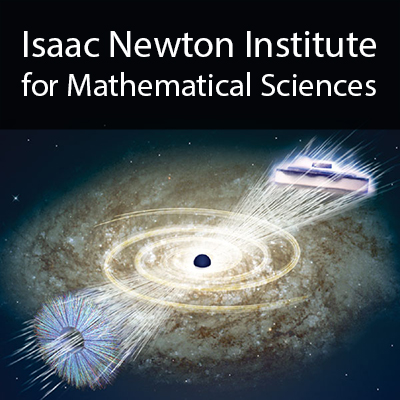A thermal quench induces spatial inhomogeneities in a holographic superconductor
Duration: 35 mins 34 secs
Share this media item:
Embed this media item:
Embed this media item:
About this item

| Description: |
Zhang, HQ (Chinese Academy of Sciences)
Tuesday 17 September 2013, 16:00-16:30 |
|---|
| Created: | 2013-09-19 09:41 |
|---|---|
| Collection: | Mathematics and Physics of the Holographic Principle |
| Publisher: | Isaac Newton Institute |
| Copyright: | Zhang, HQ |
| Language: | eng (English) |
| Keywords: | dynamical; inhomogeneous; holographic superconductor; |
| Abstract: | Co-authors: Antonio M. Garcia-Garcia (Cambridge), Hua Bi Zeng.
Holographic duality is a powerful tool to investigate the far-from equilibrium dynamics of superfluids and other phases of quantum matter. For technical reasons it is usually assumed that, after a quench, the far-from equilibrium fields are still spatially uniform. Here we relax this assumption and study the time evolution of a holographic superconductor after a temperature quench but allowing spatial variations of the order parameter amplitude. Even though the initial state and the quench are spatially uniform we show the order parameter develops spatial oscillations with an amplitude that increases with time until it reaches a stationary value for long times. The free energy of these inhomogeneous solutions is lower than that of the homogeneous ones. Therefore the former corresponds to the physical configuration that could be observed experimentally. |
|---|---|
Available Formats
| Format | Quality | Bitrate | Size | |||
|---|---|---|---|---|---|---|
| MPEG-4 Video | 640x360 | 1.94 Mbits/sec | 517.58 MB | View | Download | |
| WebM | 640x360 | 787.92 kbits/sec | 205.25 MB | View | Download | |
| iPod Video | 480x270 | 520.97 kbits/sec | 135.71 MB | View | Download | |
| MP3 | 44100 Hz | 249.74 kbits/sec | 65.12 MB | Listen | Download | |
| Auto * | (Allows browser to choose a format it supports) | |||||

